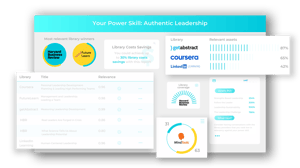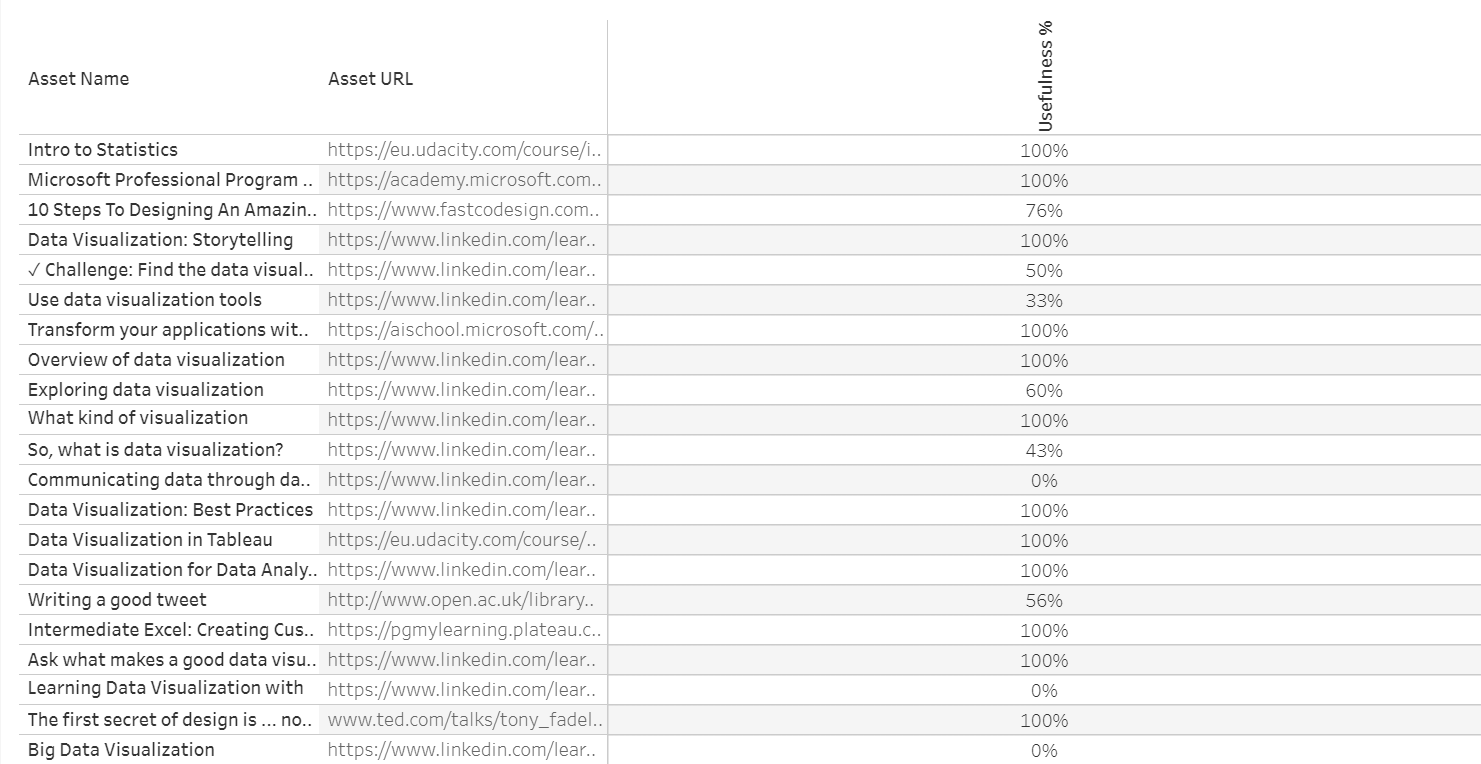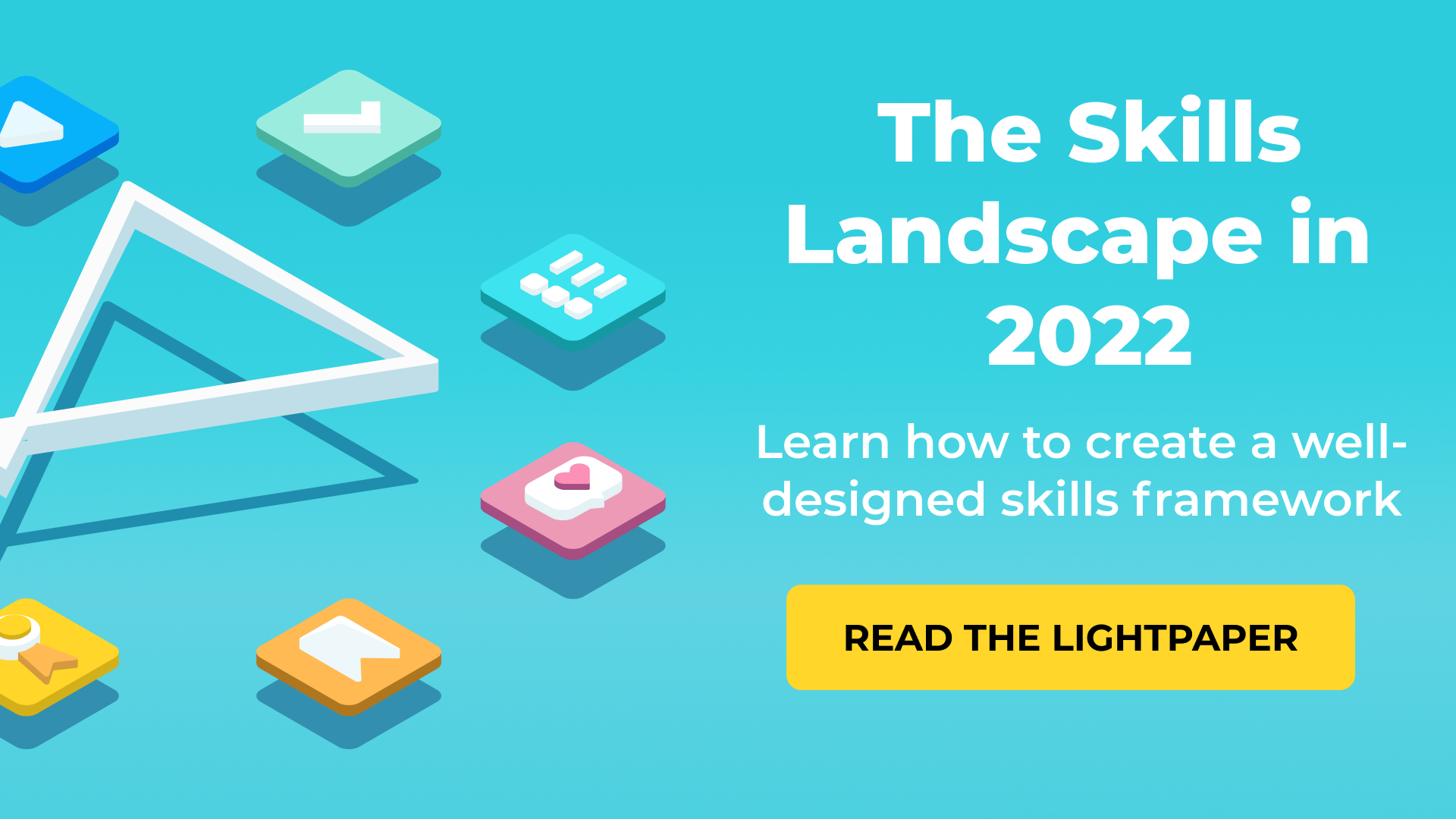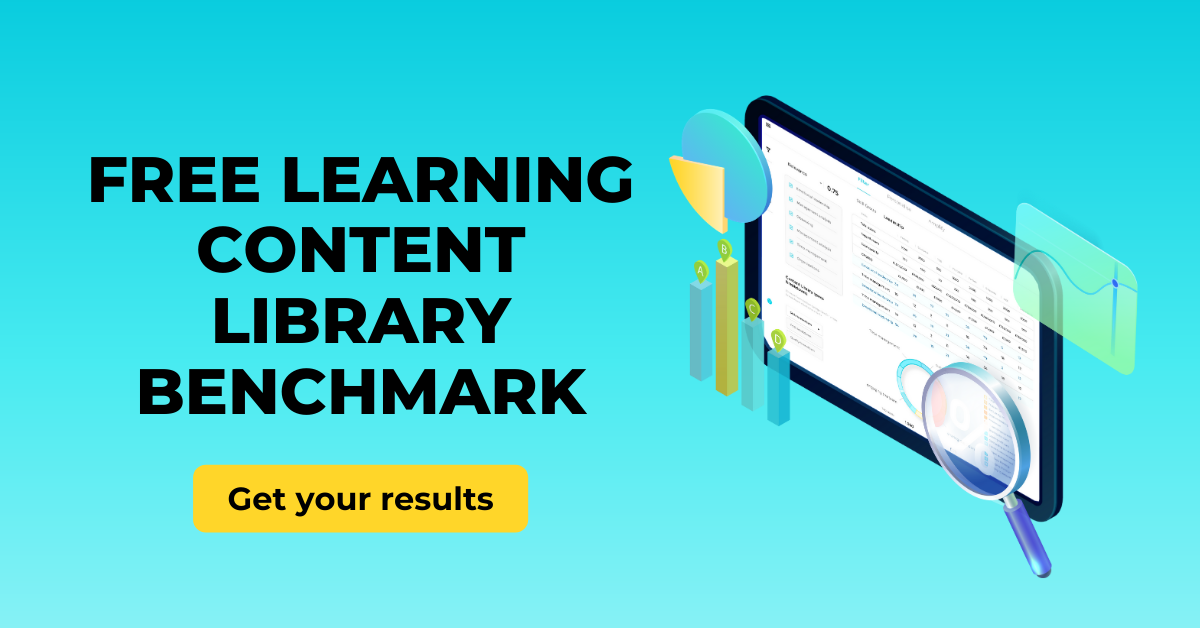In his recent must-listen podcast on skills taxonomies, Josh Bersin discussed how businesses are beginning to transition into skills economies. Increasingly, work decisions will be based on skills over other factors.
This transition is essential. Digital transformation and COVID-19 have made upskilling and reskilling so fundamental to organisational success that they are now the yardsticks against which many organisations measure L&D success. On top of this, a skills-based work system is potentially more accurate and meritocratic than one based on existing organisational hierarchies.
However, despite the pressing need for this system, it is still more aspiration than reality. This is because the collective understanding of skills is muddled. Businesses are happy to extol the virtues of taxonomies, frameworks, ontologies etc. but they’re less likely to consider the reality of what a skill really is, and what learning it means for individuals and the organisation. Until they do, skills-centric organisations are built on shaky foundations.
Why skills are poorly understood
There are a few reasons why most organisations have only a loose grasp on skills. The first is a definition problem. There’s no single authority on skills. Unlike marketing or finance, there’s not much scholarship backing up our understanding of workplace skills. Consequently, most businesses tie themselves in knots with the dizzying jargon they use to pay lip-service to skills development, masking their confusion.
For example, what do you define as a skill rather than a capability? Or a competency, behaviour, preference, value, or inclination? While some could dismiss this definition-hunting as pedantic, building an effective framework or taxonomy relies upon you understanding how each part relates to the other. Because there's no clear intellectual authority, there aren't stable definitions. But, without a clear idea of what these mean for your individual organisation, you're flying blind.
The second issue is that people tend to think of skills in abstract terms. They rarely focus on how a particular skill changes an individual’s performance and outlook. If business can’t tune in to the practical process of skills building, how will the broader frameworks they build around it be able to accurately reflect organisational realities?

Use our free learning content library benchmark to find out which providers offer the most relevant content to upskill your workforce.
How to understand skills better
To get a better understanding of skill development, it helps to think about how skills work at a granular level. How does an individual employee go about learning an individual skill and what happens once they’ve learned it? Take a reasonably specific example: communicating and visualising data. And take a reasonably specific employee: me.
The first consideration is just how unique a skill is when you drill down into its constituent parts. Even when compared to another person who wants to improve at the same skill. On a technical level, for me to learn this skill, it’s not just a matter of learning basic analytical practice (although that’s a part of it). Filtered uses a variety of complex data analysis tools. So, an ability to get around them is essential.
The second consideration is how much nuance goes into a skill even this specific. For example, when getting data into compelling copy, I won’t just need to textually communicate salient points. I’ll need to learn how to visually pull together data to make it exciting. Simultaneously, given the industry I write for, I’ll need to develop a deeper understanding of how people traditionally use and apply learning content to accurately share insights. This involves a certain amount of learning theory and experience.
How business can take control of skills
What we can see from this individual example is that, if businesses don’t consider the specifics of what makes up a skill, they won’t be able to build that skills internally. There's such a huge variety of learning content on even specific skills; most of what seems relevant is actually tangential, and a lot of content that seems irrelevant to a generic skill is actually perfect for a nuanced one.
Anonymised data from our clients shows how much goes on below the surface with skills development. Here are some results for the most popular learning assets for the skill “communicating/visualising data” for a client:
While many of the assets are clearly relevant to visualising data, some aren’t at first glance. Despite not seeming immediately relevant, “10 steps to designing an amazing infographic” received a 76% usefulness rating from learners. Similarly, “Transform your applications with AI” was rated 100% while “Use data visualization tools” was given just 33% usefulness. Even “writing a good tweet” got 56%!
If we hadn’t dug right into our definitions for this skill for the specific organisation, we would never have surfaced these learning assets. As it is, our Content Intelligence algorithms trawled the business’s learning libraries to find content that exactly matched the business's specific definitions of the “communicating/visualising data” skill. Then, our personalisation AI further matched this learning to each individual’s skills signature (our quantification of which skills each learner needs/wants based on their role, aims, and LXP history).
Developing realistic skills economies
If businesses put the work into understanding the unique and nuanced skills their employees need, as opposed to following generic frameworks, they’ll be able to take more control over talent and roles.
As Josh Bersin discussed in his podcast, technologies already exist that codify the skills employees have and the skills that roles require. The only missing link is the raw material - the skills themselves. If they can be better tied to operational and individual realities, the business will have a more robust framework it can use to regulate each stage of the employee lifecycle.
For example, if I am successful in upskilling to better communicate data, I gain a host of new, transferable skills - analytic, design, copywriting, technical etc. If Filtered could record the ones it saw as important or relevant, when a new task, collaboration, or role came up, I could be far more accurately measured against skills they might demand.
Get practical bite-sized advice to succeed in upskilling your workforce. Download the Ultimate Upskilling Cheat Sheet in 2021 here.
This is a step towards the L&D dream of a business-wide common currency of skills. In this, the entirety of the employee lifecycle could be determined by interoperable skills. Recruiting, onboarding, development, appraisals, and offboarding could all be decided by a common transaction - what skills are needed vs what skills people have. With a system like this in place, businesses would be far better configured to evolve to meet ever-accelerating skills challenges.



